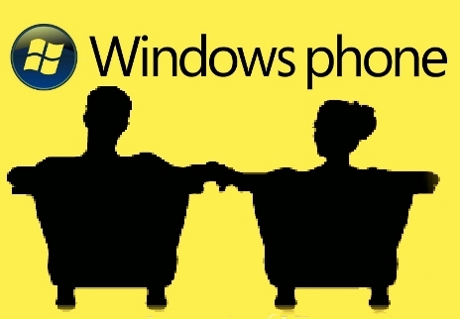Windows Phone 7: The Cialis of Smartphones?


If you suffer from chronic smartphone dysfunction, Windows Phone 7 may be for you.
Today I received a curious email. It was from my dad, a retired, 65-year old dentist who teaches at his local dental school in Southern Florida.
"Which is the best Android phone at AT&T?"
I was of course, perplexed.
Now, mind you, my father is as atypical a senior citizen as it gets -- this is a man who networked his entire condo with Wi-Fi using range extenders (with no help of my own) and customized his own La-z-Boy recliner to act as a computer workstation -- not a technology-averse person by any means whatsoever.
But he's never had any interest in having a smartphone, not at least until a few months ago, when I visited my parents and showed them my new iPad and my Motorola Droid, which has been serving me faithfully for about a year.
Had my father been a Verizon or a GMail user like myself, my response would have been fairly cut and dry -- get the Motorola Droid X, The HTC Droid Incredible or the Motorola Droid 2. Or if he was on T-Mobile, to get the new G2 or the Samsung Galaxy S. On Sprint, I'd probably recommend the Samsung Epic or the HTC EVO 4G.
But AT&T? Uh... The iPhone, I guess. But based on the god-awful things AT&T does to its Androids, such as loading them up with all sorts of extra carrier crap and ripping out Google search components, I'm not comfortable recommending any of them, and that includes the Samsung Captivate which is otherwise a pretty decent piece of hardware.
But then it dawned on me -- my dad is a Hotmail user.
Yes. Hotmail. I realize they're not the coolest of webmail providers, and they're not GMail, but they've got millions and millions of users. As does AOL Mail and Yahoo! Mail. And you know what? When it comes to integrating them with Android's email, calendar and contact management, they all suck, as do the 3rd-party solutions for attempting to make them work halfway decently on Android.
For all the techno-goodness that Android is, it is ultimately tied to GMail and Google services.
Simple, right? Just make grandma and grandpa switch to GMail, and hand them a shiny new Droid. Problem solved.
Uh, no.
Have you ever actually tried to make a Baby Boomer change their email address? Chances are, they've been using the same email provider since they've had dial-up. Yes, dial up, the way we used to get onto the Internet, with these things we used to call modems.
Also Read: Microsoft To Apple's iPhone and Google's Android -- Daddy's Home!
Although the wretched AOL software itself is now long gone, My Mother-in-Law still uses AOL Mail using their web interface, even though I told her it would be a simple matter of getting her contact list and importing it over to GMail, switching her over her mailbox to GMail with POP3, and sending out a broadcast message to her friends and family that she switched. You know what she told me? Forget it.
So my dad has Hotmail. He has AT&T. You know what? I think he'd be a good candidate for a Windows 7 Phone. And yes, I realize the iPhone can easily integrate with Hotmail, and all sorts of 3rd-party email services, but bear with me for a moment.
Why Microsoft? Windows Phone 7's got an easy-to-use interface with large tile visual icons and large text which might be appealing to someone that might be intimidated by something as sophisticated as a Droid or the iPhone, which can easily become a dizzying array of tiny icons and difficult to read text.
It's no wonder that older folks have chronic smartphone dysfunction.
A 65-year old who's never owned a smartphone device might be completely intimidated by an Android or an iOS device. Look, I'm only 41, I own a Droid and an iPad and find both platforms not particularly accessibility-friendly either.
And now that I've given it some thought, I think Microsoft should be thinking about positioning their product towards the just-retiring Boomer generation, rather than those Gen-Xers and Y-ers looking for the "Un-Android" or the "Anti-iPhone" --- which as far as I am concerned, is a demographic that does not exist. As I've said in the past, the smartphone market has chosen its technology leadership platforms, and Windows Phone isn't going to displace them.
Instead of Microsoft's marketing de-emphasis of 3rd-party Apps (well, because the platform doesn't have any yet) and spending less time with the smartphone and getting on with one's busy life as depicted in their latest commercials, I think they should be putting ads for Windows Phone 7 in TV spots for shows that "younger" Seniors watch and magazines that age demographic reads, and getting into bed with Boomer and Senior-friendly companies like AARP.
The same sort of shows and magazines that have Cialis commercials. Seriously.
Sounds nuts? Do you have any idea of how many Baby Boomers there are? If we're talking about age 65 and older, it's about 13 percent of the US population. That's not insignificant if we consider that as a whole, the population of the US is growing older.When you consider that most smartphone products are being marketed towards a younger generation of buyers, it leaves open a considerable marketing opportunity for a company like Microsoft that the others might not be addressing.
If I were Microsoft, I'd make absolutely sure that Windows Phones are everywhere that people 55 and older can find them, that patient and helpful salespeople at retailers and carrier stores are there to demo them, and that the devices are compatible and easy to configure with the email services that these seniors and Boomers use today.
Could Windows Phone 7 be the Smartphone platform for the Boomer Generation? Talk Back and Let Me Know.